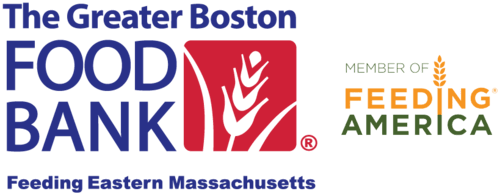GBFB Finds New Ways to Get More Food To Our Neighbors in Need
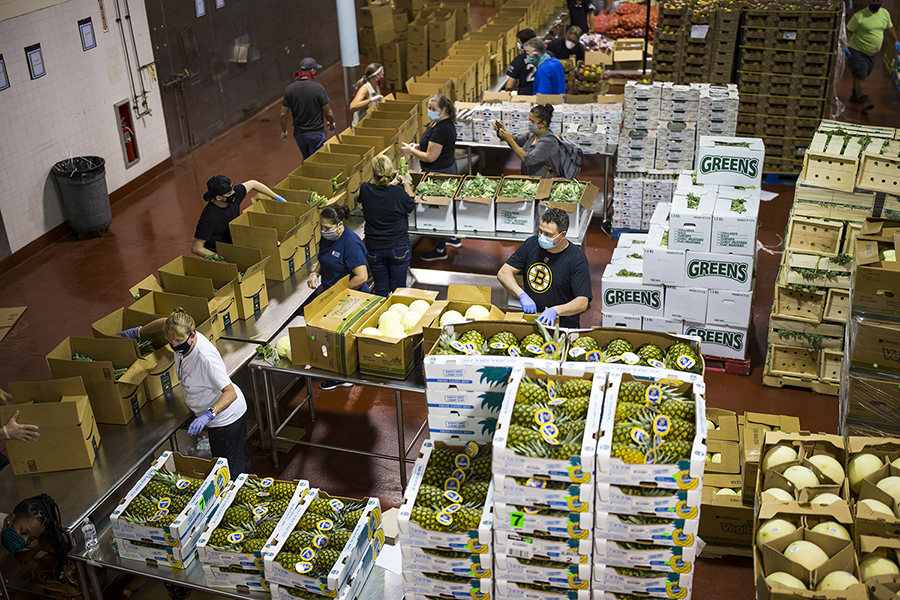
At the onset of COVID-19, The Greater Boston Food Bank (GBFB) was faced with an instant surge in demand for food assistance. To get more healthy food to the growing number of people in need, we had to find new and innovative ways of getting large quantities in food to communities across Eastern Massachusetts.
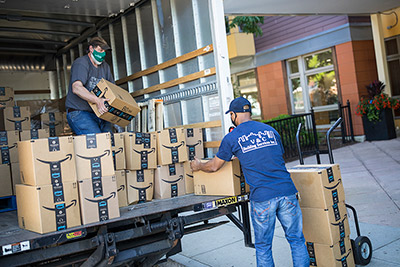
One of our new distribution models involves sending full truckloads of food directly from our food suppliers to one of our partner agencies, quickly getting healthy food to our most vulnerable communities.
“It’s a way to meet the growing needs of our agencies without putting additional strain on our warehouse,” said Rich Colburn, GBFB produce acquisition manager. “We can get them a lot of food, quicker, and at no cost to them.”
Looking for places that could accommodate, sort, and distribute these large amounts of food, we found a perfect partner in the city of Boston.
In April, we set up our first direct delivery to the Boston Public Schools kitchen in Roxbury, where city employees and volunteers from the Boston Housing Authority sorted the food into boxes containing about 20 pounds of fresh produce and some shelf-stable items.
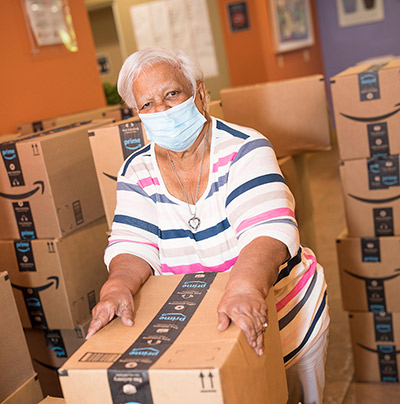
“We did 400 boxes that first Friday, all to BHA residents and families. Then we realized ‘OK, we can do this and make it bigger’,” said Aisling Kerr, project manager at the Boston Planning and Development Agency. “We got up to distributing about 2,500 boxes three times a week to about 25 different sites around the city.”
We sent these boxes to at-risk families and seniors at Boston Housing Authority locations and other locations around the city, like the Julia Martin House in Jamaica Plain.“Everyone was excited when we started getting the boxes,” said Julia Martin (pictured right), 91-year-old resident and namesake of the senior apartment complex, which she helped build and open in 2006.
All 58 units at the house received boxes of food, delivered straight to their door, every two weeks during the summer.
“All the food is fresh and beautiful. I get cucumbers, cauliflower, apples and oranges, onions, potatoes and more,” said Dinora, a retired resident of the Julia Martin House who lives alone. “I didn’t see anyone for a month because of the lockdown, my nephew shops for me and brings groceries here because I can’t leave the house, so it helps me save money too.”
“When you open the box and see all the food, you see that someone cares about you,” Martin said.
This direct delivery partnership with the city lasted for nine weeks from April to June, and provided over 20,000 boxes to people in need. Since June, GBFB has been providing the city with full tractor trailer loads of food boxes provided by the Massachusetts Emergency Management Agency (MEMA), so that Boston’s most vulnerable residents could continue receiving healthy food (pictured below).
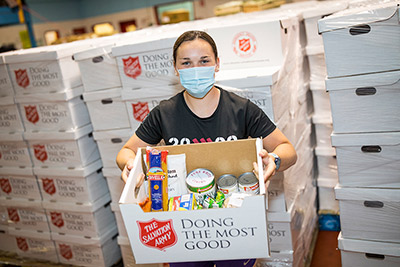
“There were so many people from the public and private sectors that collaborated on this. It really revealed the best of us in the city,” Kerr said. It’s estimated that food insecurity in Eastern Massachusetts has increased by 59 percent since the beginning of COVID-19, affecting 1 in 8 people in our service area. That translates to over 658,000 people who don’t consistently know where their next meal is coming from—nearly the entire population of the city of Boston.
In response to this pandemic and historic levels of unemployment, GBFB has distributed record amounts of food. In June, we distributed 11.5 million pounds of food, more than any other month in the history of our organization and a 110 percent increase over last June.
Your continued support helps us get vital resources to those in need.
